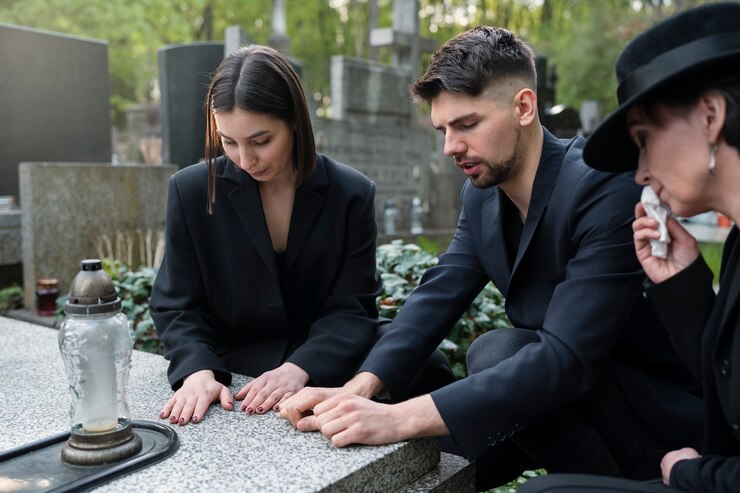Dealing with the loss of a loved one is never easy. In addition to the emotional toll, there are many practical and legal considerations. One question that may come up is whether you can bury someone on your own private property. And if so, are there any tax implications? Let’s take a closer look.
If You Bury Someone On Your Property, Do You Have to Pay Taxes – Is It Right?
The short answer is yes, in most cases you will still have to pay property taxes even if you bury someone on your land. Burying a person on private property does not automatically exempt that property from taxation.

Property tax exemptions are usually only granted for licensed, established cemeteries – not for individual grave sites on personal property. So unless your land is already designated as a cemetery, burying someone there likely won’t affect your tax status.
Additionally, using part of your property as a burial plot would probably be considered a personal use rather than a business use. And personal uses of property are typically still subject to regular property taxes.
Legal Considerations
Before burying anyone on your property, it’s crucial to understand the legal requirements. In most areas, for a burial to be legal, the location must be approved and permitted as a cemetery.
There are often local zoning regulations that restrict or prohibit burials on private land. You would need to check with your city or county to determine the specific rules for your area.
Health and safety codes usually have strict standards for burial depth, distance from water sources, and other factors. These exist to prevent contamination and protect public health.
Properly registering a death and filing a death certificate is also mandatory. Attempting to bypass this process could be considered a criminal offense.
Does Tax Still Apply To The Property?
In most cases, yes, you will still need to pay property taxes even if you bury someone on your land. The only way to be exempt from taxes is if your property is officially designated as a cemetery.

For a property to be considered a tax-exempt cemetery, it must be used exclusively for burial purposes. It cannot be operated for profit. The land must also be listed in an official burial sites catalog.
If your property doesn’t meet these strict criteria, you’ll continue owing taxes on it as usual, even with a grave on the premises. Burying a family member in your yard doesn’t automatically turn your property into a cemetery from the tax perspective.
Tax Benefits Of Having A Private Burial Ground
While there aren’t any direct tax benefits to burying someone on your property, establishing a family cemetery could offer some tax advantages. In some areas, licensed cemeteries are exempt from property taxes.
To have your land designated as a cemetery, you’ll need to go through an official process. This involves meeting specific requirements, like minimum acreage, proper zoning, and following steps to have the property removed from tax rolls.
Operating a non-profit, registered cemetery on your land could relieve you of paying taxes on that portion of your property. But this involves much more than just burying a relative in your backyard.
Local Restrictions On Home Burials
Even if taxes aren’t a major concern, there are other factors to consider before burying someone on your property. Many municipalities have restrictions around home burials.
Zoning laws, health codes, and environmental regulations often prohibit or limit the ability to use private land as a burial ground. You may need special permits. There are also rules about how deep the grave must be and how close it can be to dwellings or water sources.
Before proceeding with a home burial, carefully research any local ordinances. Consult with your city or county offices to ensure you are in full compliance with the law. Fines and penalties can apply if you fail to follow proper protocols.
Conclusion
While it might feel comforting to bury a loved one on your property, it’s crucial to consider the rules. Most places require permits and may still expect property taxes, even if you bury someone there. It’s smart to check local laws, get permits, and maybe talk to a lawyer to make sure everything is done right. Taking these steps helps honor your loved one while following the rules and protecting your property.